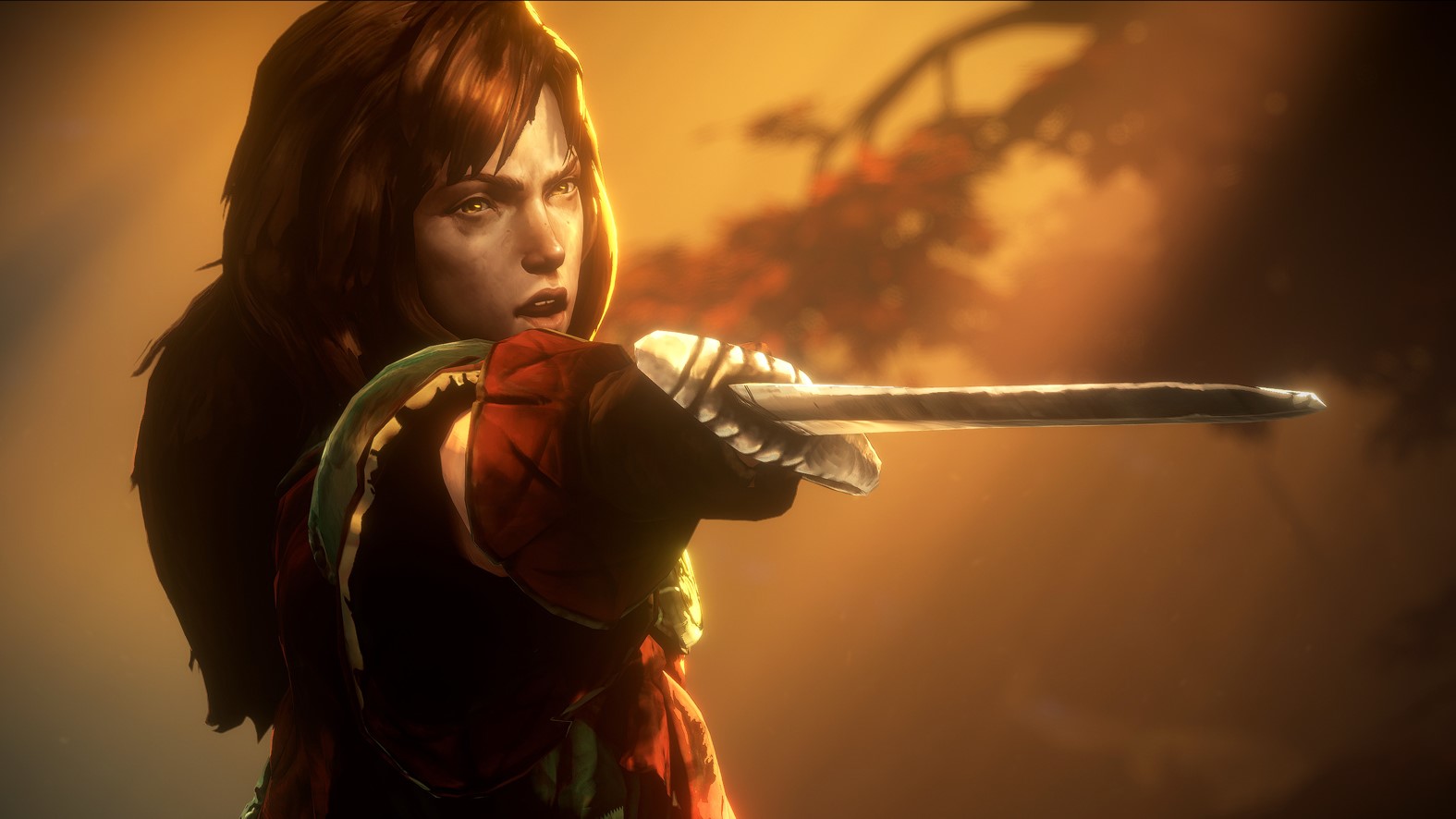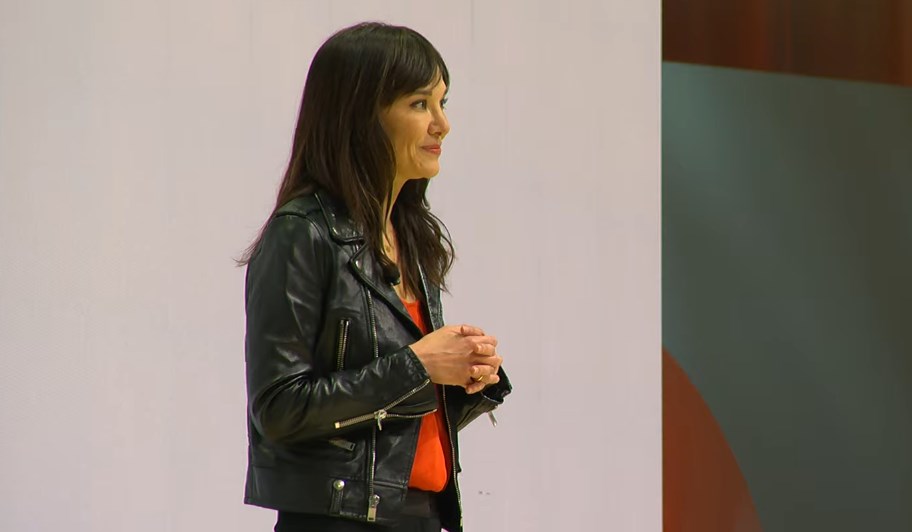
House of the Dragon Season 2, Episode 3 Review
I spend a lot of time in these reviews begging for more action in this immensely talky show, but it’s not even necessary to show a full battle to give some impression of high stakes, momentum, and consequence to all this endless plotting. Episode 3 of Season 2, thank goodness, realizes that. On an idyllic day in the country, by a wooden mill on a gently meandering river, we cut from two posturing groups of teenage boys to the aftermath of a devastating battle. Hundreds lie dead, the mill is smouldering, and the stream is polluted with corpses and soot. There are bodies as far as the eye can see.
This is the Battle of the Burning Mill, between the “Green” aligned Brackens and “Black” aligned Blackwoods. It’s a big opening salvo in the Targaryen civil war (a.k.a. Dance of the Dragons), and yet with none of our principals involved it makes sense to skip the detail and just remind us that these debates in council chambers we’ve been watching are not academic. It’s also worth noting that this season’s new embroidered credits have been updated, so that the tapestry now shows the funeral of young Prince Jaeherys and the execution of the ratcatchers that followed it. Why does it come this episode and not “Rhaenyra the Cruel”? No idea, but it’s something to watch for each week now.
Our main plot begins on Dragonstone, as Rhaenyra (Emma D’Arcy), Jacaerys (Harry Collett), and Rhaenys (Eve Best) meet at the grave of the Cargyll twins. Rhaenys counsels Rhaenyra to sue Alicent for peace and offers clear-eyed analysis of the comforting lies that both sides tell themselves. Rhaenys has really been given much more to do this season, and she’s killing it. We also learn that Mysaria did indeed try to warn Rhaenyra about the danger of Ser Arryk’s (Luke Tittensor) attack last week, and Rhaenyra now rewards her with a place in her court. Mysaria also has an odd fascination with the circling, crying dragon Seasmoke, and suggests that he’s lonely. Once again, the show hasn’t really made it clear if the dragons are mostly beasts or intelligent beings; no-one in the House of the Dragon seems interested in discussing their relationships with their steeds/weapons of mass destruction.
Rhaenyra sends her younger children away: Joffrey Velaryon and his young dragon to Lady Jeyne in the Vale, and the twins Aegon and Viserys to Pentos with Lady Rhaena (Phoebe Campbell). Rhaenyra sends Rhaena off with four dragon eggs that look red, gold, blue, and black (or maybe dragon green). Given that they’re going to Pentos, you have to wonder if they’ll one day be inherited by Daenerys, but these would appear to be the wrong mix of colors.
Rhaenyra’s council want to send her away too, pressing her endlessly for action, movement. (I sympathize.) But with the worst of her grief over and Rhaenys counselling her more closely, it’s not simple inaction now: She’s actively looking for a way through. That’s why she brings in Mysaria and asks how to meet with Alicent in secret.
It turns out Daemon (Matt Smith) has flown Caraxes to the ancient, cursed fortress of Harrenhal, generally considered key to the upcoming conflict. He’s welcomed by its castellan, Ser Simon Strong (Simon Russell Beale) but the place is deeply haunted – and almost too dark to parse, in the Game of Thrones tradition. Soon he’s having visions of the young Rhaenyra (a welcome return for Milly Alcock, who was great in the role) holding Jaehaerys’ tiny corpse. Is it the product of his own guilty conscience, or the work of the mysterious and witchy-looking Alys Rivers (Gayle Rankin)? She tells him “You’ll die in this place,” which is not the coziest opening line. It’s also interesting that Daemon insists on being addressed as “your grace,” like a king, and not “my prince,” like the prince-consort he is. He’s still not at peace with being ruled by Rhaenyra.
In King’s Landing, Ser Criston Cole (Fabien Frankel) is forced to tolerate King Aegon’s (Tom Glynn-Carney) appointing his toadies to the Kingsguard and defends himself over the loss of Ser Arryk. He insists that their troops must secure Harrenhal, that Aemond (Ewan Mitchell) protect the capital and that Aegon stay home. Aemond essentially baits his brother to battle by agreeing that it’s a bad idea for him to go; the younger brother’s envy of the King is later fuelled to incandescence by a humiliating brothel encounter.
Cole rides out with a new Mark Antony haircut and Alicent’s newly arrived brother, Ser Gwayne (Freddie Fox), instantly hostile to the man who took his father’s job. In his absence, Aegon appoints Larys (Matthew Neehdam) as Master of Whispers, a job ideal for his level of creepiness. (Note that Larys is also lurking in that brothel.) The King goes drinking in a seedy bar where we see the nameless newcomer introduced in Episode 2, now addressed as Ulf (Tom Bennett). It turns out he’s a party guy who claims Targaryen blood – but he shuts up about his claims quick-smart when the King arrives. Again, nice to see some non-nobility in this show occasionally, and a reminder that you don’t need a castle to have a stake in the world.
There are a few laughs this episode, but this is a deadly serious endeavor for the most part.
Cole and Gwayne are briefly chased by Baela on her dragon, Moondancer, and she reports to Rhaenyra that they’re headed for Rosby, her ally’s seat. Lord Staunton goes to fortify it, but Rhaneyra is focused on a different mission. She sneaks into King’s Landing with her Queensguard Ser Steffon Darklyn (Anthony Flanagan) to visit the Great Sept of Baelor and speak secretly to Alicent. She wants peace, but Alicent is adamant that she must bend the knee, that she cannot resist the Greens, and that this was Viserys’ will, changed in his final moments (which she honestly seems to believe). On questioning her, Rhaenyra realizes (correctly) that what Alicent heard was Viserys’ cherished prophecy, the Song of Ice and Fire that led the first Aegon Targaryen to conquer Westeros. The fact that Alicent doesn’t know that convinces Rhaenyra that Viserys never changed his mind and that she’s the rightful heir. She shakes Alicent’s own carefully cultivated conviction that Viserys meant her son Aegon, but Alicent doubles down anyway. She leaves and Rhaenyra lifts her chin, determined at last. It is on. Enough fretting about overreaction and peace overtures. Time for battle.
There are a few laughs this episode (Daemon’s “It’s a big chair, made of swords” is nicely timed, and Rhaenyra’s “Oh, I have begun badly” makes even Alicent smile) and a surprising amount of full-frontal male nudity, but this is a deadly serious endeavor for the most part – emphasis on the “deadly” given that opening. Rhaenyra has finally given up hope of averting this war, and Alicent is all in. The result is a genuinely exciting installment of Season 2, one that finally makes clear the deadly stakes of this family feud.








